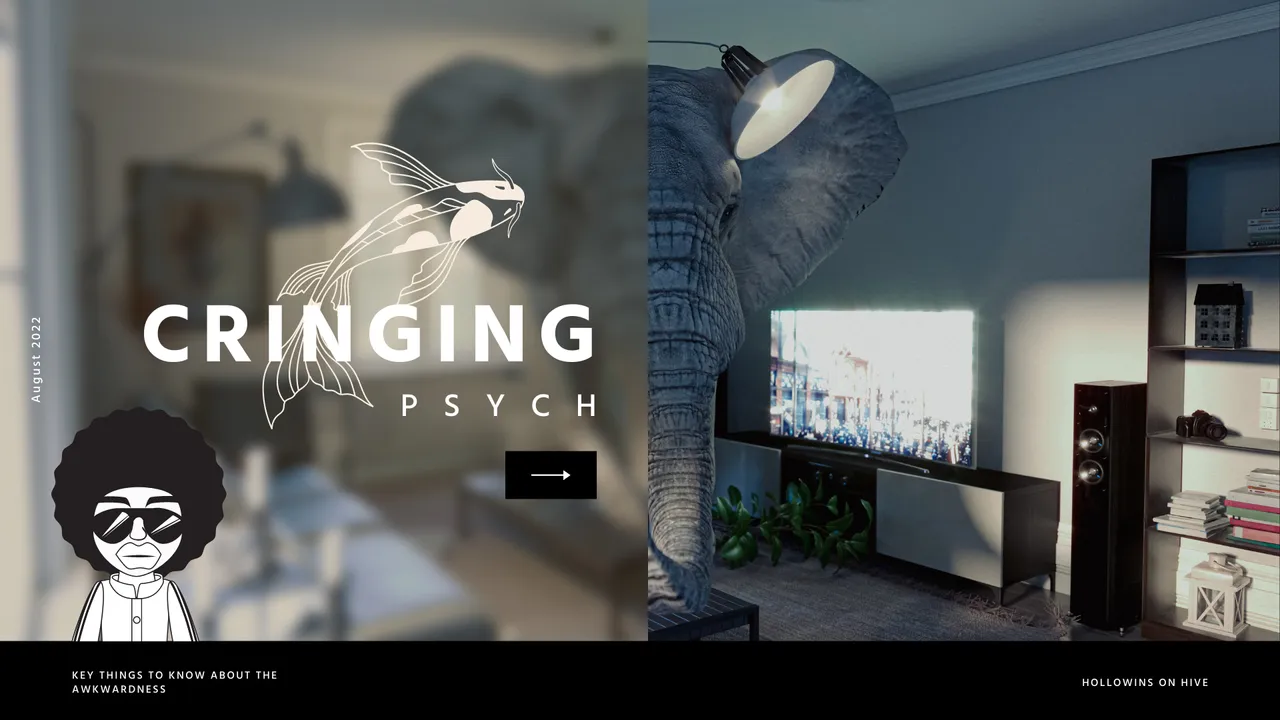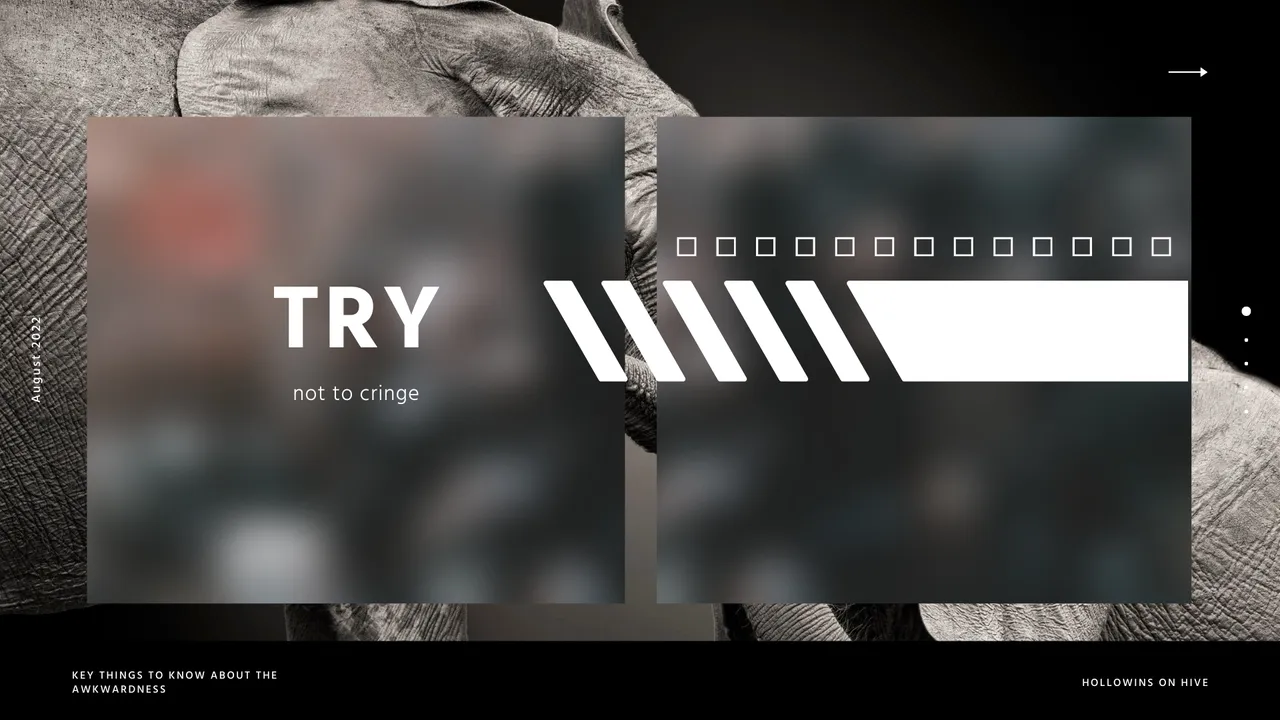
Introduction
okay so cringe comes in many different shapes and forms from the feeling you get when you hear the sound of your own voice, to the feeling you get when you see a really bad public performance, to the one you get when you see for example the leader of your country swinging helplessly on a zip line.
There's something completely different about all of these scenarios and yet there's something that ties them all together and it all comes down to a dirty lie that you've been told. But before we get to that let me share a quote with you, if awkwardness sounds the alarm cringing is what happens when it goes off.
Glimpse of Awkwardness
These are the words of Melissa Dahl, a journalist and author who wrote Cringeworthy : A Theory of Awkwardness and her work can help us understand a little bit more about cringing, why it's so painful ?, and how it's stopping us from being our best selves ?.
If you've been on this planet for any length of time, you've inevitably experienced an awkward situation. One that leaves you feeling uneasy, self-conscious, and sometimes visibly uncomfortable.
For example, when someone wishes you a happy birthday and you reply with “ you too” , or when you walk past someone you kind of know and you have to do that awkward half smile kind of thing and for the most part we can recover from these incidents without much damage. They don't cause too much trouble and we can move on with our day.

Every once in a while something a bit worse happens, it's not just a moment of slight unease. It goes a little deeper than that. It's the kind of moment that makes up the world of cringe comedy and makes tv shows like the office or peep show so difficult to watch at times.
Origin and Definition
Cringe is this deep visceral feeling, it goes way past regular embarrassment. It can cause you to lose focus of everything else around you and become hyper fixated on one thing.
But, where does it come from ?
Remember when i said we'd been lied to all of our lives at the start ?
let me explain, so throughout life we exist with this fundamental belief. This belief that there exists only one version of you. A single unique and special being that represents you , one that represents me, and one that represents your parents, your siblings, your friends.
This couldn't be further from the truth, every person that you meet whether it's your best friend or simply someone you share with, every single person you interact with creates their own unique version of you.
There are hundreds or even thousands of different versions of you that exist simultaneously. Including the version of you that exists inside your own head and sometimes there can be a bit of a clash. A clash between the version of you that exists internally and the one that's being presented to the outside world.
In these moments we experience that feeling commonly known as awkwardness. There's an irreconcilable gap between the person we believe we are and the person that we're showing off. This feeling of awkwardness triggers a kind of mental alarm which sometimes manifests physically as cringe.
That's the foundation of melissa dahl's cringe theory and i think it's a really interesting idea because you see this helps us understand why we cringe our own life experiences but also our other people's.
We can see when there's a disconnect a gap between the version of themselves that somebody is presenting and the version that's being perceived.
Awkwardness and by extension cringe comes from our ability to understand when we're being misunderstood or when someone else is being misunderstood.
Fundamentally, it's empathy and the way we frame it explains a lot about how we feel about ourselves and about other people in these kinds of situations.
Awkwardness and Corelation

So, what do we do about it then?
let's think a little bit more about the world of cringe comedy and where the appeal actually comes from. One of the reasons why cringe comedy is so appealing is that it plays on our ideas about social intelligence. It can often convince us that we're more socially intelligent than the person we're being presented with.
That they're doing something that we'd never allow ourselves to do or that they're in a situation that we'd never allow ourselves to get in. But this method of thinking isn't necessarily as rational as it seems.
We often treat feelings of cringe as if they come from a place of social intelligence when more often than not they can come from a place of ego.
It's what's called egocentrically anchored, in other words the reason you find Tiktok dances so cringy for example, is not because there's something inherently embarrassing about them but rather because they violated a social norm that you've deemed to be necessary in that moment.
Because they had the confidence to break a usually arbitrary social norm this is what you might call contemptuous cringing. you're empathizing and then judging rather than understanding that authenticity and expression are good things.
Compassionate cringing the good kind is understanding and acknowledging that plenty of things in life are going to make us feel awkward. Things that every human do.
Conclusion
It's how we react to this proverbial alarm being sounded that determines our strength of character whether or not we pass a judgment on those immediate unconscious feelings that we have. It's recognizing that finding things to be cringe is rarely a reflection of the external world and far more of a reflection on our own insecurities, norms, judgments, and biases.
Tackling all of those is a fair bit harder than just declaring everything you don't like to be cringe. So, maybe we could all try being a little bit more cringe and allowing other people to do the same it can make the world more authentic and just a nicer place to live for us and for everyone else.
what do you think ?

Images & elements are free copyright provided by canva . Designed by me